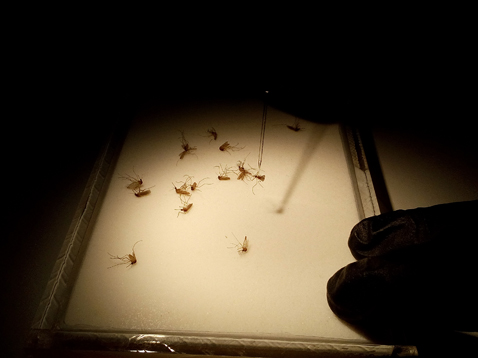Host selection by mosquitoes plays a central role in the transmission of vector-borne infectious diseases. However, the mechanisms underlying intraspecific differences in hosts' attractiveness to mosquitoes are still poorly known. Host metabolism is an important trait that may influence mosquito searching and feeding behaviors as it could affect individual host profiles including the release of some key cues such as CO2, odor, and temperature. Therefore, individual hosts with higher metabolic rates should be more attractive to host-seeking mosquitoes. Here, the role of house sparrow Passer domesticus metabolic rate in the feeding preferences of Culex pipiens, a widespread mosquito vector of many pathogens affecting humans, wildlife and livestock, is experimentally investigated. Mosquito feeding preference was negatively associated with bird resting metabolic rate. This is the first experimental evidence that host metabolic rate can affect mosquitoes' blood feeding behavior. In addition, mosquito feeding preference was positively associated with bird body mass, supporting the importance of host size on mosquito blood-feeding at the intra-specific level. The relationships between mosquito feeding preferences and individual host characteristics could be explained by enhanced anti-mosquito behaviour associated with higher metabolic rates. Individuals with high metabolism may actively avoid being bitten by mosquitoes, despite releasing more attractant cues. Since metabolic rates can be related to individual differences in personality and life history traits, differences in mosquitoes' feeding preferences may be related to intraspecific differences in exposure to vector-borne pathogens. informacion[at]ebd.csic.es Yan et al (2018) Does bird metabolic rate influence mosquito feeding preference? Parasit Vectors DOI: 10.1186/s13071-018-2708-9
https://parasitesandvectors.biomedcentral.com/articles/10.1186/s13071-018-2708-9

 Las altas temperaturas están provocando que las lagunas y las marismas de Doñana pierdan agua rápidamente
Las altas temperaturas están provocando que las lagunas y las marismas de Doñana pierdan agua rápidamente




